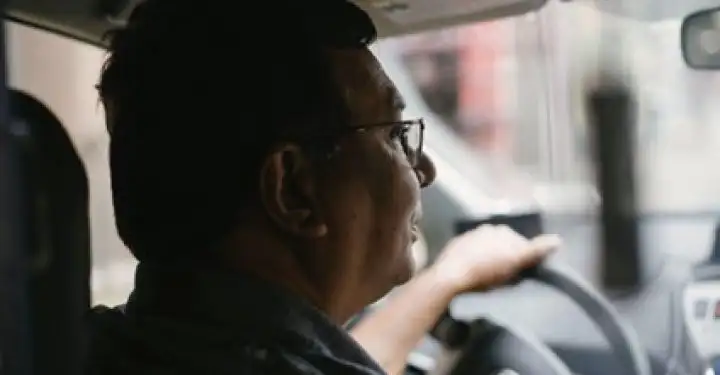Driving a vehicle is a source of mobility, security and independence. With age, retaining a licence becomes increasingly difficult with challenges such as driving assessments, declining cognitive ability and restricted physical mobility. As we grow older, it’s important to prepare for the transition of potentially living without a licence. A practical way to prepare is to begin sourcing alternative modes of transport, for example, through family and friends, public transport, walking, delivery services or community transport.
The impacts of living without a licence
In addition to reduced mobility in getting around there are also psychological impacts to living without a licence. Multiple research studies have indicated that those over the age of 50 experience severe adverse effects on their mental health when they’re no longer able to drive. A study in the US found that rates of depression almost doubled among those who had stopped driving after three years [1]. According to the study, there’s also a correlation between an older person’s inability to drive and a decline in their physical health [2]. Another US study based on Australian data, delved further into the reasons why rates of depression increased so dramatically and found that there is an overarching feeling of loss of control amongst those who lose or give up their licence at an older age [3]. Based on the evidence from these studies, it’s clear that we, as older people, need to be prepared not just for the practical restrictions of no longer driving but also the physical and mental health impacts.
Maintaining safe driving
When it comes to maintaining the ability to drive, there are preventative measures we can take to maintain our mobility and cognitive skills. Sticking with a regular physical and mental exercise routine is a great help when it comes to keeping our bodies and minds ready to get behind the wheel.
The NSW Government recommends keeping a close eye out for any changes to your health [4] and if you notice any major changes, they advise contacting a general practitioner for advice on how to manage any conditions that will affect your safety on the road. In particular, when driving, consider functionality or impairment across any of these key areas that affect driving:
- hearing and vision
- memory, problem solving and decision making skills
- strength, flexibility and movement
- medications
Transitioning to living without a licence
For those who are no longer driving and feel as though they’re losing a sense of agency within their own life, it’s important to understand that seeking alternative networks of support doesn’t mean giving up control of your life. It may take some time to adjust to a new routine but there are plenty of services and modes of transport that are available to ensure that you can live your life the way you want to. It’s also important to open up to those you can trust. Talk about the challenges around transitioning to having no licence, whether that be for the purpose of brainstorming new ideas for transportation or just for having a chat- chances are, it will make you feel better.
Transitioning to living without a licence can be a daunting prospect, but by preparing for this transition and accessing support, you can continue to get around and realise that your independence is not solely dependent on your ability to drive.
References:
[1] [2] Windsor TD, Anstey KJ, Butterworth P, Luszcz MA and Andrews GR (2007) The Role of Perceived Control in Explaining Depressive Symptoms Associated With Driving Cessation in a Longitudinal Study. The Gerontologist 47(2): 215-223. https://doi.org/10.1093/geront/47.2.215
[3] Chihuri S, Mielenz TJ, DiMaggio CJ, Betz ME, DiGuiseppi C, Jones VC and Li Guohua (2016) Driving Cessation and Health Outcomes in Older Adults. Journal of the American Geriatrics Society 64(2): 332-341. https://doi.org/10.1111/jgs.13931
[4] Transport for NSW, Centre for Road Safety (2015) On the road 65plus, staying independent and safe. NSW Government.On the road 65Plus (nsw.gov.au)
